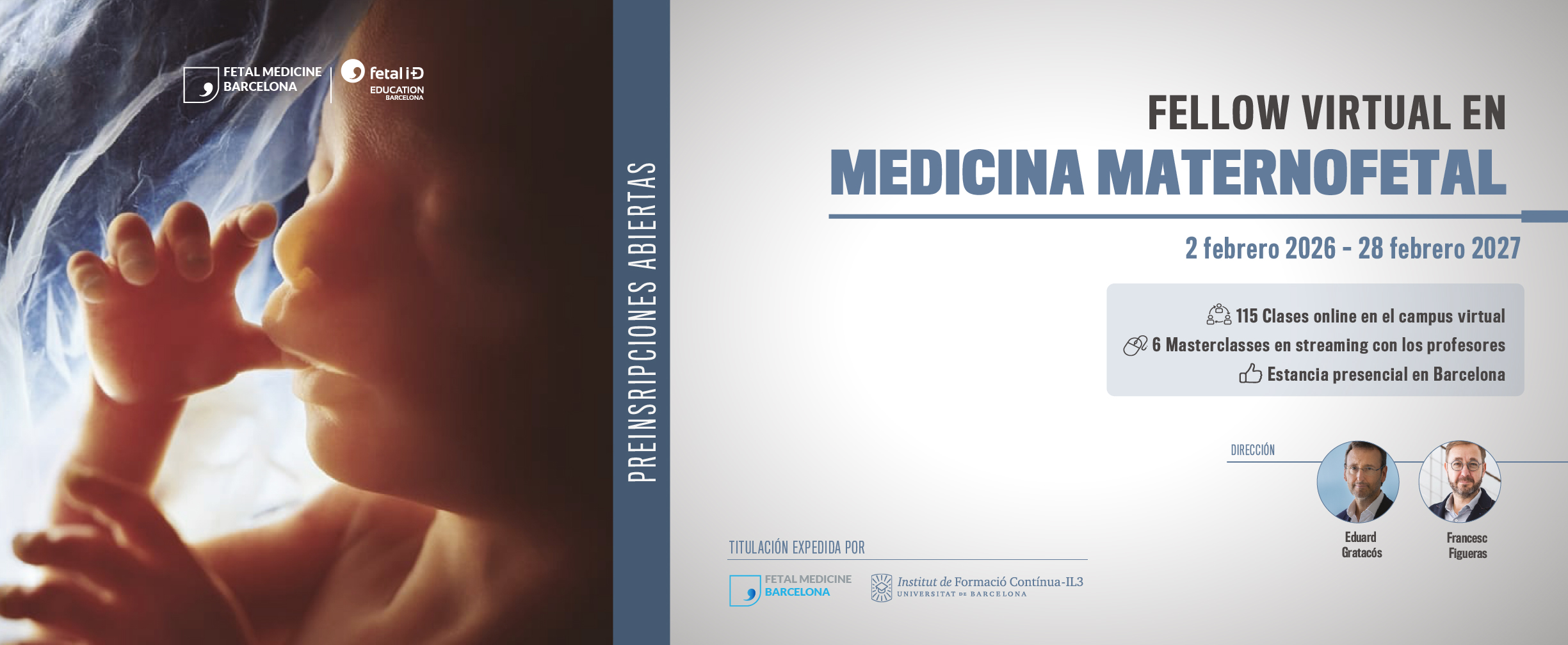
The Vitual Fellow in Maternal-Fetal Medicine responds to the need for obstetricians with advanced training in maternal-fetal care.
The training consists of a theoretical-practical component and a practical in-person component.
The theoretical-practical component includes online training through modules covering basic and advanced knowledge in maternal-fetal medicine. This part is supported by an interactive platform featuring discussion forums and Masterclasses conducted by experts in the field. It also includes practicums that students must complete for each module.
The completion of the program includes an in-person period in Barcelona. During this period, Meet the Professor classes, clinical cases, invasive techniques, and simulations will be conducted.
Specialist professionals in gynecology and obstetrics with a minimum experience in maternal-fetal medicine who wish to undergo a high-level update that prepares them for their daily practice and have limited time available.
To carry out a high-level theoretical-practical update in maternal-fetal medicine at an international reference center.
This course emerges to meet the demand for obstetricians with advanced training in maternal-fetal care. This program aims to enhance professionals’ skills to improve the health and well-being of both the mother and the fetus during pregnancy and childbirth. With a theoretical and practical education, it seeks to address the complexities and challenges that may arise in this field. Includes an on-site period in Barcelona.
Language: Spanish
Course Information
From February 3, 2025, to February 28, 2026
24 students per academic year
Fetal Medicine Barcelona and Fetal i+D Education Barcelona
Eduard Gratacós
Francesc Figueras
Rosa Hernández
This course is in Spanish.
The on-site part of the course will take place in the city of Barcelona, Spain.
Online disciplines will be taught by Fetal i+D Education Barcelona® through the virtual campus.
The total cost of the course is €12,250.00 per student.
To reserve a place, a payment of €2,250.00 is required, maximum 10 days after receiving confirmation of the place.
The remaining amount can be paid in a single installment or in 5 installments of €2,000.00 each (one installment per month, depending on the date of confirmation of the place). Check for discounts or promotions for paying in a single installment.
Payments can be made by bank transfer, credit card, or PayPal.
From November 30, 2024, no refunds will be made, except for major causes that must be justified with the required documentation.
For more information, do not hesitate to contact us through the following means:
Structure, Calendar, and Content
The program consists of 6 theoretical modules covering almost all current fetal pathology, providing advanced training through theoretical classes and an interactive platform.
Each module allows online viewing of videos with their theoretical content. These modules will have a specified duration and will be conducted sequentially.
The theoretical assessment is done online, after the Masterclass session and after addressing all the students’ doubts. The exam will be multiple-choice with questions that may include images and videos, with specific dates for completion.
Masterclass sessions with the tutor of each module will be scheduled in Zoom format, where students can ask their questions live to the experts. They will be coordinated by a moderator who will facilitate their development. The session will be held before the end of the online exam period to address all student doubts.
All modules include a practical component consisting of obtaining and submitting a certain number of images* following the criteria outlined in the theoretical classes.
These images will be evaluated and scored by the Course Academic Committee, providing students with personalized feedback to detect possible errors and improve technically and in their clinical practice.
This component requires dedication from the student and aims to improve ultrasound performance in their daily clinical practice. Additionally, some modules require the submission of documented clinical cases, obtained by the student at their workplace, along with associated images.
A forum will be created using the Moodle platform for each module. It will be supervised by the course’s scientific coordinator to ensure its proper functioning.
It will be available to students at the start of the module, providing a space to share concerns and questions regarding the topics covered. Module directors will also present clinical cases to generate discussion.
The on-site period consists of two weeks in Barcelona from November 3, 2025, to November 14, 2025, from Monday to Friday, and includes the following activities:
The Fellow’s training includes the completion of final research project evaluated by the expert committee. There are two options for the works:
Each student will propose a topic for their work. Proposals must be submitted by March 21st, 2025 through the form on the course’s virtual campus for evaluation by the Scientific Committee to assess their suitability. The Scientific Committee will determine the final topic for each student and assign a tutor to advise them during its completion.
Pre-registration, selection criteria, and inscription
The number of available spots is limited. To apply for a spot, it is necessary to register by filling out the form available here..
Receipt of the application will be confirmed within a maximum of one week from the date of receipt.
Important: Any applications lacking requested information will not be considered or responded to. It is important to read all the information carefully.
Geographic origin, aiming for representation from the maximum number of countries.
Letter of motivation.
CV Form. Previous experience in Fetal Medicine and the ability to obtain the required images for the practicums outlined in the program are valued. Presentations at conferences or publications are also considered.
Important: When attaching the motivation letter requested in the form, it should explain why you want to pursue this postgraduate/fellowship. Any applications lacking requested information will not be considered or responded to. It is important to read all the information carefully.
The date for responding to selected students will depend on the number of applications and the score obtained by the student in the selection process. When the maximum number of accepted candidates is reached, registrations will be closed. Selected individuals will receive an email indicating their acceptance and providing necessary information to initiate the process. We recommend reading the information available on our website under the “Considerations before Pre-registering” section beforehand.
Individuals not admitted will receive an email indicating that their candidacy has not been accepted.
Pre-registration requires a commitment to:
We ask that individuals refrain from pre-registering if they are unsure whether they can complete the course, either due to being unable to attend the in-person component or meet deadlines for image submission, exams, payments, etc. It is important to thoroughly read all the information before pre-registering.
In the event of withdrawal from the course, the applicant will be required to submit a letter to the course secretary requesting cancellation of their registration. There is no refund of the registration fee.
Certification
To obtain the certification, it is essential to pass each of the modules, both the theoretical and practical parts involving image presentation and the final project.
*What is a university’s own degree?
University’s own degrees at the University of Barcelona are intended for the specialization and deepening of professionals already in practice.
*What is the difference between own degrees and degrees from universities?
According to section g) of article 2 of Organic Law 6/2001, of December 21, on Universities, the State grants Spanish universities autonomy for “the issuance of official titles with validity throughout the national territory and their diplomas and own degrees”. With this measure, universities are empowered to expand their official training offer through the so-called own degrees. Official degrees require a series of procedures and evaluations by different public bodies such as the National Agency for Quality Assessment and Accreditation (ANECA) and are necessary for doctoral studies. Own degrees are specialized training with various denominations (master’s, postgraduate, expert, etc.) and do not require validation by institutions such as ANECA. They are designed to respond quickly to the needs of the labor market and society, aimed at achieving objectives such as:
– Providing specialized training with immediate professional prospects.
– Updating the knowledge of professionals to promote qualifications for professional practice.
– Establishing a connection between academic activity and social reality (an objective endorsed by the frequent organization of titles taught through agreements with public institutions and private companies).
*What validity does an own degree have outside of Spain?
An own degree course has the same validity inside and outside of Spain, as it is a curricular title of non-regulated studies approved by university councils and supported by the Organic Law of Universities, accrediting the continuous training of the student.
*What is not a specific university degree?
It is not a preliminary stage to access a doctoral program. Under special circumstances, the degree could be used for these purposes in accordance with the legislation of each country, but this is not its main purpose. This postgraduate program requires the completion of a research project, with the main objective of acquiring competencies in the interpretation of research literature. In some individual cases, this work may be original research and may even lead to a publication or continuation of a research career after completing the course. However, this is not the main objective of the diploma, so it should not be considered formal training in maternal-fetal medicine research.
This Specialization diploma does not qualify for independent professional practice regardless of the local regulations of each country. For this reason, only specialists in fetal medicine and professionals in obstetric ultrasound with experience in echocardiography can be accepted. In some specific countries, this type of activity could later be used to accredit or obtain an additional national title in the field of Maternal-Fetal Medicine, but this will always depend on local regulations and is not an automatic feature of this degree at all.
Requirements for obtaining the certificate:
– Attendance of 80% of the on-site component
– Passing each module separately, both in its online part and the practicum
– Participation in forums
– Passing the final project
Document to be downloaded in case you are selected
Contact
For more information, do not hesitate to contact us through the following means:
From February 3, 2025, to February 28, 2026
24 students per academic year
Fetal Medicine Barcelona and Fetal i+D Education Barcelona
Eduard Gratacós
Francesc Figueras
Rosa Hernández
This course is in Spanish.
The on-site part of the course will take place in the city of Barcelona, Spain.
Online disciplines will be taught by Fetal i+D Education Barcelona® through the virtual campus.
The total cost of the course is €12,250.00 per student.
To reserve a place, a payment of €2,250.00 is required, maximum 10 days after receiving confirmation of the place.
The remaining amount can be paid in a single installment or in 5 installments of €2,000.00 each (one installment per month, depending on the date of confirmation of the place). Check for discounts or promotions for paying in a single installment.
Payments can be made by bank transfer, credit card, or PayPal.
From November 30, 2024, no refunds will be made, except for major causes that must be justified with the required documentation.
For more information, do not hesitate to contact us through the following means:
The program consists of 6 theoretical modules covering almost all current fetal pathology, providing advanced training through theoretical classes and an interactive platform.
Each module allows online viewing of videos with their theoretical content. These modules will have a specified duration and will be conducted sequentially.
The theoretical assessment is done online, after the Masterclass session and after addressing all the students’ doubts. The exam will be multiple-choice with questions that may include images and videos, with specific dates for completion.
Masterclass sessions with the tutor of each module will be scheduled in Zoom format, where students can ask their questions live to the experts. They will be coordinated by a moderator who will facilitate their development. The session will be held before the end of the online exam period to address all student doubts.
All modules include a practical component consisting of obtaining and submitting a certain number of images* following the criteria outlined in the theoretical classes.
These images will be evaluated and scored by the Course Academic Committee, providing students with personalized feedback to detect possible errors and improve technically and in their clinical practice.
This component requires dedication from the student and aims to improve ultrasound performance in their daily clinical practice. Additionally, some modules require the submission of documented clinical cases, obtained by the student at their workplace, along with associated images.
A forum will be created using the Moodle platform for each module. It will be supervised by the course’s scientific coordinator to ensure its proper functioning.
It will be available to students at the start of the module, providing a space to share concerns and questions regarding the topics covered. Module directors will also present clinical cases to generate discussion.
The on-site period consists of two weeks in Barcelona from November 3, 2025, to November 14, 2025, from Monday to Friday, and includes the following activities:
The Fellow’s training includes the completion of final research project evaluated by the expert committee. There are two options for the works:
Each student will propose a topic for their work. Proposals must be submitted by March 21st, 2025 through the form on the course’s virtual campus for evaluation by the Scientific Committee to assess their suitability. The Scientific Committee will determine the final topic for each student and assign a tutor to advise them during its completion.
The number of available spots is limited. To apply for a spot, it is necessary to register by filling out the form available here..
Receipt of the application will be confirmed within a maximum of one week from the date of receipt.
Important: Any applications lacking requested information will not be considered or responded to. It is important to read all the information carefully.
Geographic origin, aiming for representation from the maximum number of countries.
Letter of motivation.
CV Form. Previous experience in Fetal Medicine and the ability to obtain the required images for the practicums outlined in the program are valued. Presentations at conferences or publications are also considered.
Important: When attaching the motivation letter requested in the form, it should explain why you want to pursue this postgraduate/fellowship. Any applications lacking requested information will not be considered or responded to. It is important to read all the information carefully.
The date for responding to selected students will depend on the number of applications and the score obtained by the student in the selection process. When the maximum number of accepted candidates is reached, registrations will be closed. Selected individuals will receive an email indicating their acceptance and providing necessary information to initiate the process. We recommend reading the information available on our website under the “Considerations before Pre-registering” section beforehand.
Individuals not admitted will receive an email indicating that their candidacy has not been accepted.
Pre-registration requires a commitment to:
We ask that individuals refrain from pre-registering if they are unsure whether they can complete the course, either due to being unable to attend the in-person component or meet deadlines for image submission, exams, payments, etc. It is important to thoroughly read all the information before pre-registering.
In the event of withdrawal from the course, the applicant will be required to submit a letter to the course secretary requesting cancellation of their registration. There is no refund of the registration fee.
To obtain the certification, it is essential to pass each of the modules, both the theoretical and practical parts involving image presentation and the final project.
*What is a university’s own degree?
University’s own degrees at the University of Barcelona are intended for the specialization and deepening of professionals already in practice.
*What is the difference between own degrees and degrees from universities?
According to section g) of article 2 of Organic Law 6/2001, of December 21, on Universities, the State grants Spanish universities autonomy for “the issuance of official titles with validity throughout the national territory and their diplomas and own degrees”. With this measure, universities are empowered to expand their official training offer through the so-called own degrees. Official degrees require a series of procedures and evaluations by different public bodies such as the National Agency for Quality Assessment and Accreditation (ANECA) and are necessary for doctoral studies. Own degrees are specialized training with various denominations (master’s, postgraduate, expert, etc.) and do not require validation by institutions such as ANECA. They are designed to respond quickly to the needs of the labor market and society, aimed at achieving objectives such as:
– Providing specialized training with immediate professional prospects.
– Updating the knowledge of professionals to promote qualifications for professional practice.
– Establishing a connection between academic activity and social reality (an objective endorsed by the frequent organization of titles taught through agreements with public institutions and private companies).
*What validity does an own degree have outside of Spain?
An own degree course has the same validity inside and outside of Spain, as it is a curricular title of non-regulated studies approved by university councils and supported by the Organic Law of Universities, accrediting the continuous training of the student.
*What is not a specific university degree?
It is not a preliminary stage to access a doctoral program. Under special circumstances, the degree could be used for these purposes in accordance with the legislation of each country, but this is not its main purpose. This postgraduate program requires the completion of a research project, with the main objective of acquiring competencies in the interpretation of research literature. In some individual cases, this work may be original research and may even lead to a publication or continuation of a research career after completing the course. However, this is not the main objective of the diploma, so it should not be considered formal training in maternal-fetal medicine research.
This Specialization diploma does not qualify for independent professional practice regardless of the local regulations of each country. For this reason, only specialists in fetal medicine and professionals in obstetric ultrasound with experience in echocardiography can be accepted. In some specific countries, this type of activity could later be used to accredit or obtain an additional national title in the field of Maternal-Fetal Medicine, but this will always depend on local regulations and is not an automatic feature of this degree at all.
Requirements for obtaining the certificate:
– Attendance of 80% of the on-site component
– Passing each module separately, both in its online part and the practicum
– Participation in forums
– Passing the final project
Document to be downloaded in case you are selected
For more information, do not hesitate to contact us through the following means:
Module 1
FETAL MORPHOLOGICAL AND GENETIC DIAGNOSISTutors: Eduard Gratacós | Elisenda Eixarch | Miriam Illa
Masterclass – Eduard Gratacós
MORPHOLOGICAL ULTRASOUND
1.1 Anatomical evaluation in the first trimester – MBennasar
1.2 Detectable malformative pathology in the first trimester – VBorobio
1.3 Morphological ultrasound: systematic – OGómez
1.4 Basic and advanced sections. Cardiac Doppler and M-mode – JMMartínez
1.5 CNS ultrasound – E.Eixarch
1.6 Facial ultrasound: Most common facial defects – J.Ssabrià
1.7 Screening for congenital heart diseases: Most common heart diseases – JMMartínez
1.8 Early fetal echocardiography – JMMartínez
1.9 Chest ultrasound: masses and pulmonary anomalies – EGratacós
1.10 Abdominal ultrasound: Gastrointestinal alterations and abdominal wall anomalies – MBennasar
1.11 Nephro-urological system ultrasound – VBorobio
1.12 Limb anomalies and most frequent skeletal dysplasias – JMMartínez
1.13 Aneuploidy screening in the second trimester – L.Otaño
1.14 First-trimester genetic sonogram – MBennasar
SCREENING FOR CHROMOSOMAL AND GENETIC ANOMALIES
1.15 Conventional aneuploidy screening: The combined test – TBorrell
1.16 Screening and prenatal diagnosis in multiple pregnancies – A Goncé
1.17 Chorionic villus sampling and amniocentesis – TBorrell
1.18 Karyotype: reliability and limitations – NBaena
1.19 Free fetal DNA – CComas
1.20 Genomic microarray and exome – TBorrell
Module 2
DOPPLER AND PLACENTAL PATHOLOGYTutors: Francesc Figueras | Lola Gómez
Masterclass – Francesc Figueras
FETOPLACENTAL DOPPLER
2.1 Fetal growth evaluation – Eva Meler
2.2 Basics for correct Doppler use – Edgar Hernández
2.3 Basic vessels: Umbilical artery and intrauterine arteries – Jezid Miranda
2.4 Cerebral circulation. MCA – Eva Meler
2.5 Venous vessels: Venous duct and umbilical vein – Eduard Gratacós
EARLY-ONSET DISEASE
2.6 Early screening and prevention of preeclampsia – Francesc Figueras
2.7 Integrated protocol for CIR management based on stages – Eduard Gratacós
2.8 Management of early-onset preeclampsia – Francesc Figueras
2.9 Early CIR management: reasoning and considerations for clinical practice – Francesc Figueras
LATE-ONSET DISEASE
2.10 Prediction and diagnostic challenges – Francesc Figueras
2.11 Late-onset growth delay management: physiological basis – Francesc Figueras
2.12 Late-onset preeclampsia – Fàtima Crispi
2.13 Second-trimester growth delay – Francesc Figueras
Module 3
FETAL NEUROSONOGRAPHYTutors: Elisenda Eixarch | Miriam Illa
Masterclass – Elisenda Eixarch
ADVANCED NEUROFETAL
3.1 Anatomy and development of the CNS – Albert Prats
3.2 Neurosonography. Systematic – Elisenda Eixarch
3.3 Magnetic resonance. Indications – Mónica Rebollo
STRUCTURAL CNS ANOMALIES
3.4 Anomalies detected in the first trimester – Josep M Martínez
3.5 Ventriculomegaly – Elisenda Eixarch
3.6 Midline anomalies – Guillermo Azumendi
3.7 Brain and posterior fossa anomalies – Miriam Pérez Cruz
3.8 Vascular malformations – Miriam Pérez Cruz
3.9 Space-occupying anomalies – Míriam Illa
3.10 Cortical development anomalies – Elisenda Eixarch
3.11 Surgical pathology of the CNS – Elisenda Eixarch
ACQUIRED ANOMALIES
3.12 CNS destructive lesions – Elisenda Eixarch
3.13 Infections – Anna Goncé
3.14 Subtle brain damage and the concept of brain remodeling – Eduard Gratacós
GENERAL ASPECTS
3.15 Neonatal neurological evaluation – Carme Fons
Module 4
MATERNAL PATHOLOGYTutors: Lola Gómez | Teresa Cobo | Marta López
Masterclass – Marta López
BLOCK 1. INFECTIONS IN MATERNAL-FETAL MEDICINE
CHRONIC VIRAL INFECTIONS
4.1 Hepatitis B and C – Marta López
4.2 HIV – Marta López
4.3 Invasive procedures in chronic viral infection – Marta López
EMERGING INFECTIONS IN OUR ENVIRONMENT
4.4 Syphilis and pregnancy – Marta López
4.5 Other imported infections: Chagas, malaria, Dengue, and Chikungunya – José M.Muñoz
4.6 Listeria and pregnancy – Ana Sandra Hernández
4.7 Zika virus, management, and implications in pregnancy – Anna Goncé
TORCH INFECTIONS
4.8 Toxoplasmosis – Anna Goncé
4.9 Chickenpox and herpes simplex – Anna Goncé
4.10 CMV infection: diagnosis and clinical management – Anna Goncé
4.11 Parvovirus B19. Diagnosis and treatment of fetal anemia – Antoni Borrell
PREVENTION OF INFECTIONS AND CONTACTS
4.12 Action in the face of contact with infectious diseases during pregnancy – Laura García
4.13 Vaccines in pregnancy and in the perigestational period – Anna Llupià
BLOCK 2. MATERNAL-FETAL PATHOLOGY
4.14 Early screening for prematurity – Teresa Cobo
4.15 Prematurity risk – Teresa Cobo
4.16 Premature membrane rupture – Teresa Cobo
4.17 Threat of preterm labor – Mauro Parra
4.18 Preeclampsia. Maternal complications – Mauricio Vasco
4.19 Update on gestational diabetes and early screening for diabetes – Eva Meler
4.20 Thromboembolic prophylaxis – Laura Guirado
4.21 Systemic lupus erythematosus and antiphospholipid syndrome – Gerard Espinosa
4.22 Pregnancy and heart diseases – Marta López
4.23 Thyroid and pregnancy – Jordi Bellart
4.24 Management of gestation in previous cesarean section – Marta López
4.25 Placental accretion – Marta López
4.26 Evaluation of the placenta and amniotic fluid – F. Crovetto
Module 5
FETAL ECHOCARDIOGRAPHYTutors: Josep Mª Martínez
Masterclass – Josep Mª Martínez
INTRODUCTION
5.1 Importance and epidemiology of congenital heart diseases – Josep M Martínez
5.2 Fetal echocardiography – Josep M Martínez
5.3 Techniques for measuring cardiac function – Fàtima Crispi
5.4 Study of fetal cardiac function: Indications and considerations – Fàtima Crispi
SEPTAL HEART DISEASES
5.5 Ventricular septal defect – Olga Gómez
5.6 Atrioventricular canal – Fàtima Crispi
5.7 Double-inlet single ventricle – Olga Gómez
LEFT HEART DISEASES
5.8 Hypoplastic left heart, mitral atresia – Olga Gómez
5.9 Aortic stenosis/atresia – Olga Gómez
5.10 Aortic coarctation – Olga Gómez
5.11 Interrupted aortic arch – Olga Gómez
5.12 Other aortic arch anomalies: Right aortic arch | Aberrant right subclavian artery – Olga Gómez
RIGHT HEART DISEASES
5.13 Tricuspid atresia – Narcís Masoller
5.14 Ebstein anomalies, tricuspid dysplasia – Narcís Masoller
5.15 Pulmonary stenosis/atresia – Narcís Masoller
CONOTRUNCAL HEART DISEASES
5.16 Tetralogy of Fallot – Mar Bennasar
5.17 Transposition of great arteries – Mar Bennasar
5.18 Corrected transposition of great arteries – Mar Bennasar
5.19 Double outlet right ventricle – Mar Bennasar
5.20 Truncus arteriosus – Mar Bennasar
OTHER ALTERATIONS
5.21 Anomalies of pulmonary and systemic venous return – Josep M Martínez
5.22 Other heart diseases: Isomerisms | Cardiomyopathies | Tumors – Josep M Martínez
5.23 Warning signs: Hyperechogenic foci, asymmetry, cardiac axis deviation, tricuspid insufficiency, pericardial effusion – Josep M Ma
5.24 Cardiac arrhythmias: Irregular rhythms, tachyarrhythmias, bradyarrhythmias – Olga Gómez
5.25 Fetal therapy. Cardiac interventionism – Josep M Martínez
5.26 Final summary and conclusions – Josep M Martínez
Module 6
ADVANCED FETAL PATHOLOGYTutors: Eduard Gratacós | Josep Mª Martínez
Masterclass – Eduard Gratacós
POSTNATAL SURGICAL MANAGEMENT ANOMALIES
6.1 Pulmonary anomalies. MAQ – Olga Gómez
6.2 Abdominal wall anomalies. Bladder exstrophy. Cloacal anomalies – Mar Bennasar
6.3 Gastrointestinal anomalies – Mar Bennasar
6.4 Nephrological anomalies. Upper tract dilations – Virginia Borobio
6.5 Fetal tumors with perinatal implications. EXIT – Josep M Martínez
MULTIPLE GESTATION PATHOLOGY
6.6 Dichorionic twin pregnancy – A. Goncé
6.7 Monochorionic twin pregnancy I. Complications: STFF, selective CIR, TRAP, TAPS. – Eduard Gratacós
6.8 Monochorionic twin pregnancy II. – Josep M. Martínez
6.9 Multichorionic pregnancy: Approach to triple/superior gestations or discordant anomaly. Josep M Martínez
FETAL THERAPY TRIBUTARY ANOMALIES
6.10 Thoracic anomalies. Diaphragmatic hernia. Hydrothorax. CHAOS – Olga Gómez
6.11 Obstruction/dilation of the lower urinary tract – Josep M Martínez
6.12 Fetal anemia. Intrauterine transfusion. Alloimmune thrombocytopenia – Edgar Hernández
6.13 Amniotic fluid pathology – Marta López
OTHER FETAL PATHOLOGY
6.14 Genetic anomalies fetal pathology. Advances in genetic diagnosis. – Antoni Borrell
Module 7
FINAL REVIEW / RESEARCH PROJECTThere are 2 possible assignments:
1. Systematic literature review of a current topic covered during the Postgraduate program.
2. Original research in your own setting.
The on-site stay is designed to facilitate interaction among participants and to allow direct contact with the course directors and other experts in fetal medicine, enabling firsthand sharing of their experience and insights on ultrasound and its integration into fetal medicine, as well as modern fetal medicine in general. It will take place from November 3, 2025 to November 14,2025.
It includes:
Meet the Professor: Four-hour sessions featuring practical aspects presented by Fetal i+D Education-affiliated professors, concluding with open discussions, with the course directors participating on most days.
Topics covered include:
– Ultrasound and Screening
– Prematurity
– Genetic Prenatal Diagnosis
– Cardiology
– Neurosonography
– Doppler
Invasive Technique Workshops: Workshops conducted with simulators, guided by experts in invasive techniques.
Case Studies: Participants will be asked to present their own clinical cases, which will be discussed in group sessions supervised by an expert.
On-site professors: Mar Bennasar, Teresa Cobo, Fàtima Crispi, Elisenda Eixarch, Francesc Figueras, Eduard Gratacós, Olga Gómez, Lola Gómez, Miriam Illa, Josep M Martínez, Eva Meler, Teresa Cobo, Miriam Pérez Cruz, Joan Sabrià. With the participation of the course directors (Eduard Gratacós and Francesc Figueras).
(In case of unforeseen circumstances, these sessions may be conducted via streaming).
Tutors: Eduard Gratacós | Elisenda Eixarch | Miriam Illa
Masterclass – Eduard Gratacós
MORPHOLOGICAL ULTRASOUND
1.1 Anatomical evaluation in the first trimester – MBennasar
1.2 Detectable malformative pathology in the first trimester – VBorobio
1.3 Morphological ultrasound: systematic – OGómez
1.4 Basic and advanced sections. Cardiac Doppler and M-mode – JMMartínez
1.5 CNS ultrasound – E.Eixarch
1.6 Facial ultrasound: Most common facial defects – J.Ssabrià
1.7 Screening for congenital heart diseases: Most common heart diseases – JMMartínez
1.8 Early fetal echocardiography – JMMartínez
1.9 Chest ultrasound: masses and pulmonary anomalies – EGratacós
1.10 Abdominal ultrasound: Gastrointestinal alterations and abdominal wall anomalies – MBennasar
1.11 Nephro-urological system ultrasound – VBorobio
1.12 Limb anomalies and most frequent skeletal dysplasias – JMMartínez
1.13 Aneuploidy screening in the second trimester – L.Otaño
1.14 First-trimester genetic sonogram – MBennasar
SCREENING FOR CHROMOSOMAL AND GENETIC ANOMALIES
1.15 Conventional aneuploidy screening: The combined test – TBorrell
1.16 Screening and prenatal diagnosis in multiple pregnancies – A Goncé
1.17 Chorionic villus sampling and amniocentesis – TBorrell
1.18 Karyotype: reliability and limitations – NBaena
1.19 Free fetal DNA – CComas
1.20 Genomic microarray and exome – TBorrell
Tutors: Francesc Figueras | Lola Gómez
Masterclass – Francesc Figueras
FETOPLACENTAL DOPPLER
2.1 Fetal growth evaluation – Eva Meler
2.2 Basics for correct Doppler use – Edgar Hernández
2.3 Basic vessels: Umbilical artery and intrauterine arteries – Jezid Miranda
2.4 Cerebral circulation. MCA – Eva Meler
2.5 Venous vessels: Venous duct and umbilical vein – Eduard Gratacós
EARLY-ONSET DISEASE
2.6 Early screening and prevention of preeclampsia – Francesc Figueras
2.7 Integrated protocol for CIR management based on stages – Eduard Gratacós
2.8 Management of early-onset preeclampsia – Francesc Figueras
2.9 Early CIR management: reasoning and considerations for clinical practice – Francesc Figueras
LATE-ONSET DISEASE
2.10 Prediction and diagnostic challenges – Francesc Figueras
2.11 Late-onset growth delay management: physiological basis – Francesc Figueras
2.12 Late-onset preeclampsia – Fàtima Crispi
2.13 Second-trimester growth delay – Francesc Figueras
Tutors: Elisenda Eixarch | Miriam Illa
Masterclass – Elisenda Eixarch
ADVANCED NEUROFETAL
3.1 Anatomy and development of the CNS – Albert Prats
3.2 Neurosonography. Systematic – Elisenda Eixarch
3.3 Magnetic resonance. Indications – Mónica Rebollo
STRUCTURAL CNS ANOMALIES
3.4 Anomalies detected in the first trimester – Josep M Martínez
3.5 Ventriculomegaly – Elisenda Eixarch
3.6 Midline anomalies – Guillermo Azumendi
3.7 Brain and posterior fossa anomalies – Miriam Pérez Cruz
3.8 Vascular malformations – Miriam Pérez Cruz
3.9 Space-occupying anomalies – Míriam Illa
3.10 Cortical development anomalies – Elisenda Eixarch
3.11 Surgical pathology of the CNS – Elisenda Eixarch
ACQUIRED ANOMALIES
3.12 CNS destructive lesions – Elisenda Eixarch
3.13 Infections – Anna Goncé
3.14 Subtle brain damage and the concept of brain remodeling – Eduard Gratacós
GENERAL ASPECTS
3.15 Neonatal neurological evaluation – Carme Fons
Tutors: Lola Gómez | Teresa Cobo | Marta López
Masterclass – Marta López
BLOCK 1. INFECTIONS IN MATERNAL-FETAL MEDICINE
CHRONIC VIRAL INFECTIONS
4.1 Hepatitis B and C – Marta López
4.2 HIV – Marta López
4.3 Invasive procedures in chronic viral infection – Marta López
EMERGING INFECTIONS IN OUR ENVIRONMENT
4.4 Syphilis and pregnancy – Marta López
4.5 Other imported infections: Chagas, malaria, Dengue, and Chikungunya – José M.Muñoz
4.6 Listeria and pregnancy – Ana Sandra Hernández
4.7 Zika virus, management, and implications in pregnancy – Anna Goncé
TORCH INFECTIONS
4.8 Toxoplasmosis – Anna Goncé
4.9 Chickenpox and herpes simplex – Anna Goncé
4.10 CMV infection: diagnosis and clinical management – Anna Goncé
4.11 Parvovirus B19. Diagnosis and treatment of fetal anemia – Antoni Borrell
PREVENTION OF INFECTIONS AND CONTACTS
4.12 Action in the face of contact with infectious diseases during pregnancy – Laura García
4.13 Vaccines in pregnancy and in the perigestational period – Anna Llupià
BLOCK 2. MATERNAL-FETAL PATHOLOGY
4.14 Early screening for prematurity – Teresa Cobo
4.15 Prematurity risk – Teresa Cobo
4.16 Premature membrane rupture – Teresa Cobo
4.17 Threat of preterm labor – Mauro Parra
4.18 Preeclampsia. Maternal complications – Mauricio Vasco
4.19 Update on gestational diabetes and early screening for diabetes – Eva Meler
4.20 Thromboembolic prophylaxis – Laura Guirado
4.21 Systemic lupus erythematosus and antiphospholipid syndrome – Gerard Espinosa
4.22 Pregnancy and heart diseases – Marta López
4.23 Thyroid and pregnancy – Jordi Bellart
4.24 Management of gestation in previous cesarean section – Marta López
4.25 Placental accretion – Marta López
4.26 Evaluation of the placenta and amniotic fluid – F. Crovetto
Tutors: Josep Mª Martínez
Masterclass – Josep Mª Martínez
INTRODUCTION
5.1 Importance and epidemiology of congenital heart diseases – Josep M Martínez
5.2 Fetal echocardiography – Josep M Martínez
5.3 Techniques for measuring cardiac function – Fàtima Crispi
5.4 Study of fetal cardiac function: Indications and considerations – Fàtima Crispi
SEPTAL HEART DISEASES
5.5 Ventricular septal defect – Olga Gómez
5.6 Atrioventricular canal – Fàtima Crispi
5.7 Double-inlet single ventricle – Olga Gómez
LEFT HEART DISEASES
5.8 Hypoplastic left heart, mitral atresia – Olga Gómez
5.9 Aortic stenosis/atresia – Olga Gómez
5.10 Aortic coarctation – Olga Gómez
5.11 Interrupted aortic arch – Olga Gómez
5.12 Other aortic arch anomalies: Right aortic arch | Aberrant right subclavian artery – Olga Gómez
RIGHT HEART DISEASES
5.13 Tricuspid atresia – Narcís Masoller
5.14 Ebstein anomalies, tricuspid dysplasia – Narcís Masoller
5.15 Pulmonary stenosis/atresia – Narcís Masoller
CONOTRUNCAL HEART DISEASES
5.16 Tetralogy of Fallot – Mar Bennasar
5.17 Transposition of great arteries – Mar Bennasar
5.18 Corrected transposition of great arteries – Mar Bennasar
5.19 Double outlet right ventricle – Mar Bennasar
5.20 Truncus arteriosus – Mar Bennasar
OTHER ALTERATIONS
5.21 Anomalies of pulmonary and systemic venous return – Josep M Martínez
5.22 Other heart diseases: Isomerisms | Cardiomyopathies | Tumors – Josep M Martínez
5.23 Warning signs: Hyperechogenic foci, asymmetry, cardiac axis deviation, tricuspid insufficiency, pericardial effusion – Josep M Ma
5.24 Cardiac arrhythmias: Irregular rhythms, tachyarrhythmias, bradyarrhythmias – Olga Gómez
5.25 Fetal therapy. Cardiac interventionism – Josep M Martínez
5.26 Final summary and conclusions – Josep M Martínez
Tutors: Eduard Gratacós | Josep Mª Martínez
Masterclass – Eduard Gratacós
POSTNATAL SURGICAL MANAGEMENT ANOMALIES
6.1 Pulmonary anomalies. MAQ – Olga Gómez
6.2 Abdominal wall anomalies. Bladder exstrophy. Cloacal anomalies – Mar Bennasar
6.3 Gastrointestinal anomalies – Mar Bennasar
6.4 Nephrological anomalies. Upper tract dilations – Virginia Borobio
6.5 Fetal tumors with perinatal implications. EXIT – Josep M Martínez
MULTIPLE GESTATION PATHOLOGY
6.6 Dichorionic twin pregnancy – A. Goncé
6.7 Monochorionic twin pregnancy I. Complications: STFF, selective CIR, TRAP, TAPS. – Eduard Gratacós
6.8 Monochorionic twin pregnancy II. – Josep M. Martínez
6.9 Multichorionic pregnancy: Approach to triple/superior gestations or discordant anomaly. Josep M Martínez
FETAL THERAPY TRIBUTARY ANOMALIES
6.10 Thoracic anomalies. Diaphragmatic hernia. Hydrothorax. CHAOS – Olga Gómez
6.11 Obstruction/dilation of the lower urinary tract – Josep M Martínez
6.12 Fetal anemia. Intrauterine transfusion. Alloimmune thrombocytopenia – Edgar Hernández
6.13 Amniotic fluid pathology – Marta López
OTHER FETAL PATHOLOGY
6.14 Genetic anomalies fetal pathology. Advances in genetic diagnosis. – Antoni Borrell
There are 2 possible assignments:
1. Systematic literature review of a current topic covered during the Postgraduate program.
2. Original research in your own setting.
The on-site stay is designed to facilitate interaction among participants and to allow direct contact with the course directors and other experts in fetal medicine, enabling firsthand sharing of their experience and insights on ultrasound and its integration into fetal medicine, as well as modern fetal medicine in general. It will take place from November 3, 2025 to November 14,2025.
It includes:
Meet the Professor: Four-hour sessions featuring practical aspects presented by Fetal i+D Education-affiliated professors, concluding with open discussions, with the course directors participating on most days.
Topics covered include:
– Ultrasound and Screening
– Prematurity
– Genetic Prenatal Diagnosis
– Cardiology
– Neurosonography
– Doppler
Invasive Technique Workshops: Workshops conducted with simulators, guided by experts in invasive techniques.
Case Studies: Participants will be asked to present their own clinical cases, which will be discussed in group sessions supervised by an expert.
On-site professors: Mar Bennasar, Teresa Cobo, Fàtima Crispi, Elisenda Eixarch, Francesc Figueras, Eduard Gratacós, Olga Gómez, Lola Gómez, Miriam Illa, Josep M Martínez, Eva Meler, Teresa Cobo, Miriam Pérez Cruz, Joan Sabrià. With the participation of the course directors (Eduard Gratacós and Francesc Figueras).
(In case of unforeseen circumstances, these sessions may be conducted via streaming).
Fetal i+D Academic Direction and Supervision
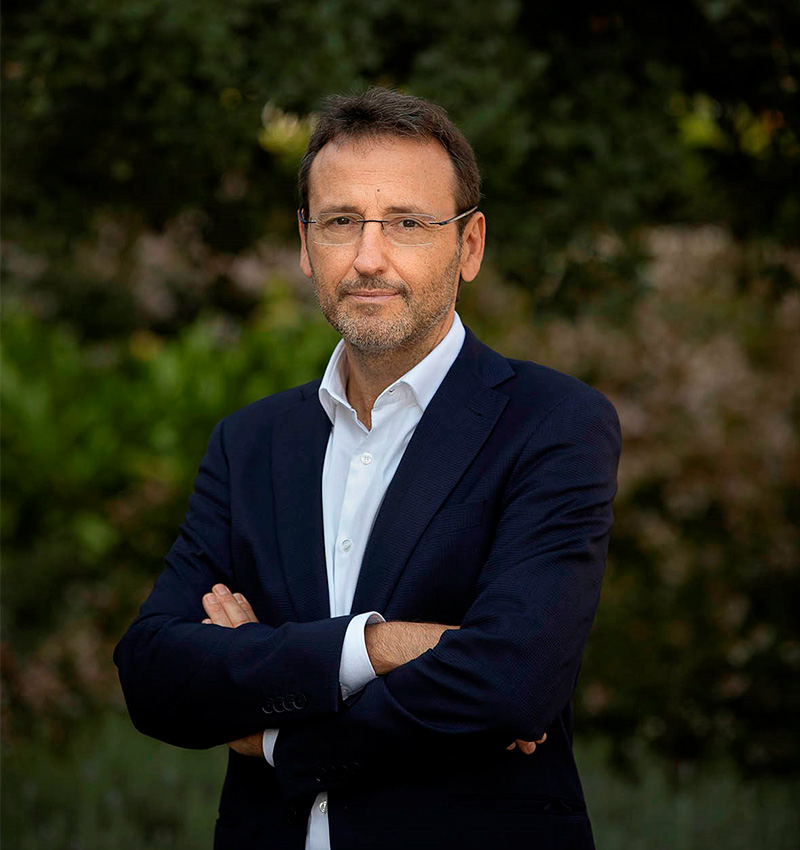 Eduard Gratacós
Eduard Gratacós
Director of BCNatal (Hospital Clínic Barcelona and Hospital Sant Joan de Déu Barcelona), and full Professor at the University of Barcelona.
Expert in Fetal Medicine and Fetal Surgery, he has participated in the design of new techniques and procedures, and has performed over 1800 fetal interventions.
Editor-in-Chief of Fetal Diagnosis & Therapy journal.
Coordinator of more than 150 onsite and online courses, postgraduate and master’s degrees, and the Erasmus Mundus international doctorate for the European Commission.
Coordinator of >60 national and international research projects, director of 39 doctoral theses, and author of more than 485 articles published in indexed journal with an impact factor.
 Francesc Figueras
Francesc Figueras
Head of the Department of Maternal-Fetal Medicine at Hospital Clinic (Barcelona) and Full Professor of the University of Barcelona.
Master’s Degree in Research Methodology for Health Sciences by the Autonomous University of Barcelona.
Postgraduate degree in Public Health by the University of Edinburgh.
Research lines in Fetal Growth Restriction and Preeclampsia: author of ~260 articles in indexed journals (~760 Impact Factor). h-Factor 59. Author of 15 book chapters, and Editor of 6 published books.
Invited speaker to more than 200 international congresses and conferences.
Director of 14 PhD Thesis Projects.
Principal Investigator of 10 public-funded competitive research projects.
Professors
 Josep Mª Martinez
Josep Mª Martinez
Josep Ma Martinez PhD, MD, is a Physician, Senior Consultant in Maternal-Fetal Medicine, Head of Fetal Medicine, and Coordinator of Fetal Medicine and Therapy at BCNatal (Hospital Clínic and Hospital Sant Joan de Déu).
He has almost 20 years of experience and 2000 fetal surgery procedures. Director of 4 doctoral theses, he has published more than 150 scientific articles in international journals with and impact factor and is a regular scientific reviewer for the main international and national journals in his specialty.
He has been a speaker more than 400 times at courses, conferences, and congresses. He is also Professor at the University of Barcelona.
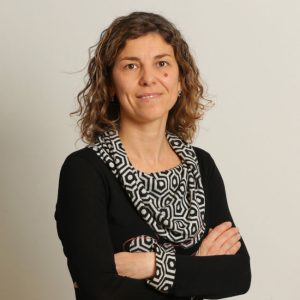 Mar Bennasar
Mar Bennasar
Mar Bennasar is a Maternal-Fetal Consultant of the Department of Maternal-Fetal Medicine at BCNatal (Hospital Clínic and Hospital Sant Joan de Déu of Barcelona).
She is specialized in fetal cardiology and fetal therapy, with more than 15 years of experience.
She has published more than 40 scientific papers in international journals. She usually participates in national and international courses and congresses as faculty member.
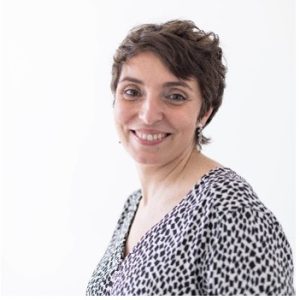 Elisenda Eixarch
Elisenda Eixarch
Post-doctoral researcher at the Fetal and Perinatal Medicine Research Group, IDIBAPS.
Coordinator of the research lines on “Fetal Neurodevelopment” and “Fetal Therapy and Surgery,” with extensive experience in research using animal models and neuroimaging.
Associate professor at the University of Barcelona.
Specialist in Fetal Medicine, member of the Fetal Neurosonography Unit, and the fetal surgery team with over 250 surgeries as an assistant and 20 surgeries as the lead surgeon.
Has published over 85 scientific articles in international journals with an H-index of 29.
 Olga Gómez
Olga Gómez
Since 2008, Olga Gómez is a member of the Fetal Pathology and Cardiology Units at BCNatal, a referral center in Maternal-Fetal Medicine at Hospitals Clinic and Sant Joan de Déu in Barcelona, and of the Fetal Medicine Research Center (Fetal i+D), a multidisciplinary team with one of the largest scientific international productions.
She is currently Coordinator of the Fetal Cardiology Unit, one of the largest reference units for evaluation of cardiac anomalies in Spain, with more than 100 major confirmed cardiac defects yearly. With a broad background in fetal medicine, and particularly in advanced fetal ultrasound and echocardiography, in recent years her research has focused on functional echocardiographic evaluation of congenital heart disease. In 2014, she spent a year as a research fellow in the Pediatric Cardiology Division at SickKids Hospital, in Toronto Canada.
Olga Gómez is also an Associate Professor of Obstetrics at the University of Barcelona. She has participated as speaker in more than 70 courses and seminars on fetal pathology and echocardiography and has been involved in different clinical research projects. As a result of her professional activity, she has authored more than 65 papers published in indexed journals, and she has directed two doctoral theses.
 Fàtima Crispi
Fàtima Crispi
Fàtima Crispi is senior consultant at the Fetal Cardiology Unit in BCNatal (Hospital Clínic and Hospital Sant Joan de Déu), Scientific Coordinator of the BCNatal Fetal Medicine Research Center, and Associate Professor at the University of Barcelona.
Academic Editor at PlosONE and Scientific Reports journal.
Maternal-Fetal Medicine specialist in Fetal Cardiology, leading the Fetal Programming Research Line at BCNatal, with more than 180 peer-reviewed papers and h-index of 41.
Director of 13 PhD theses.
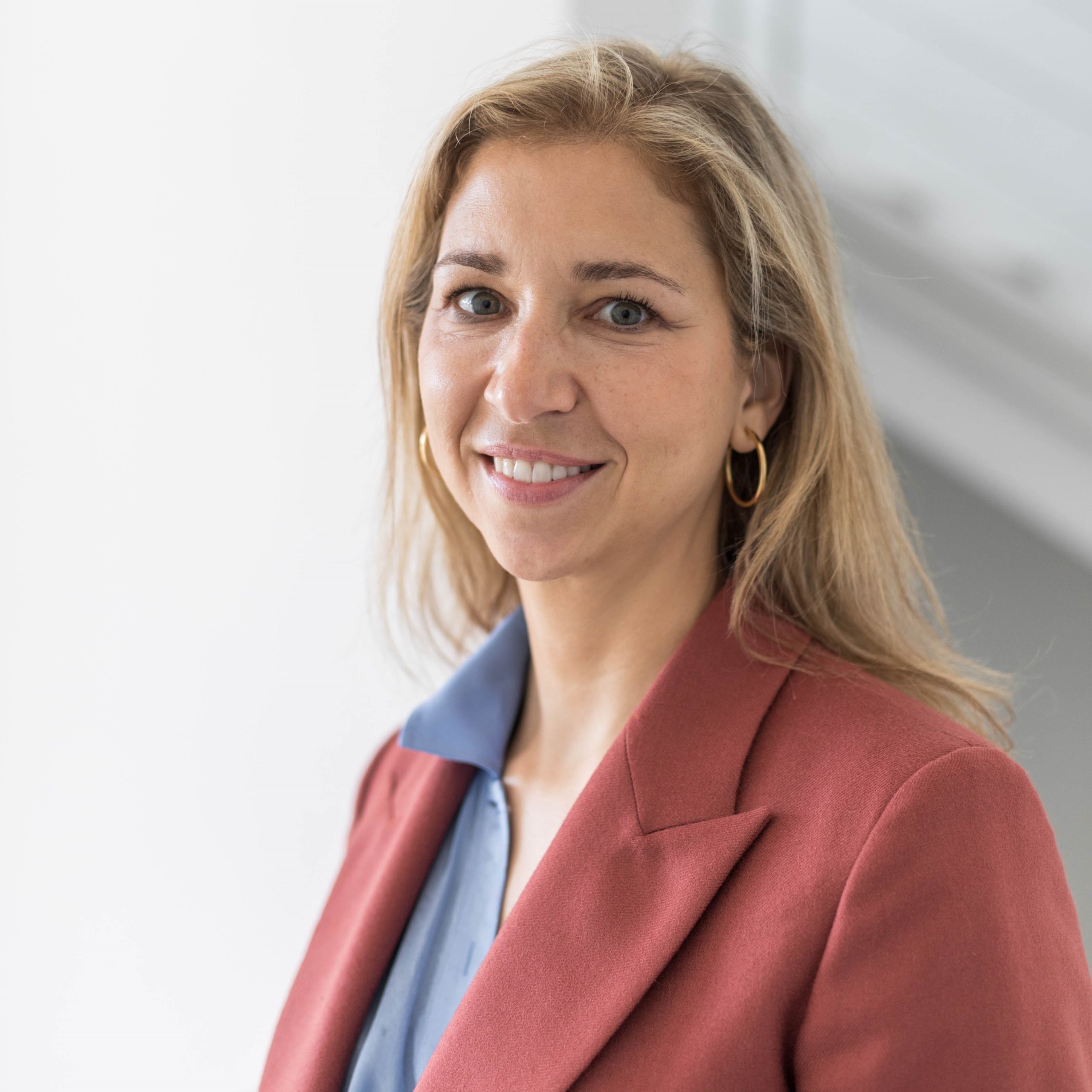 Miriam Pérez
Miriam Pérez
Postdoctoral researcher and teacher in numerous specialized courses in Fetal I + D Education and international conferences.
She is a researcher for the Maternal and Child Health and Development Network (RedSAMID) funded by the Carlos III Health Institute and focuses her research on neurodevelopment in congenital heart disease.
She is responsible for the prenatal circuit of Perinatal Palliative Cures group at the Sant Joan de Déu Hospital.
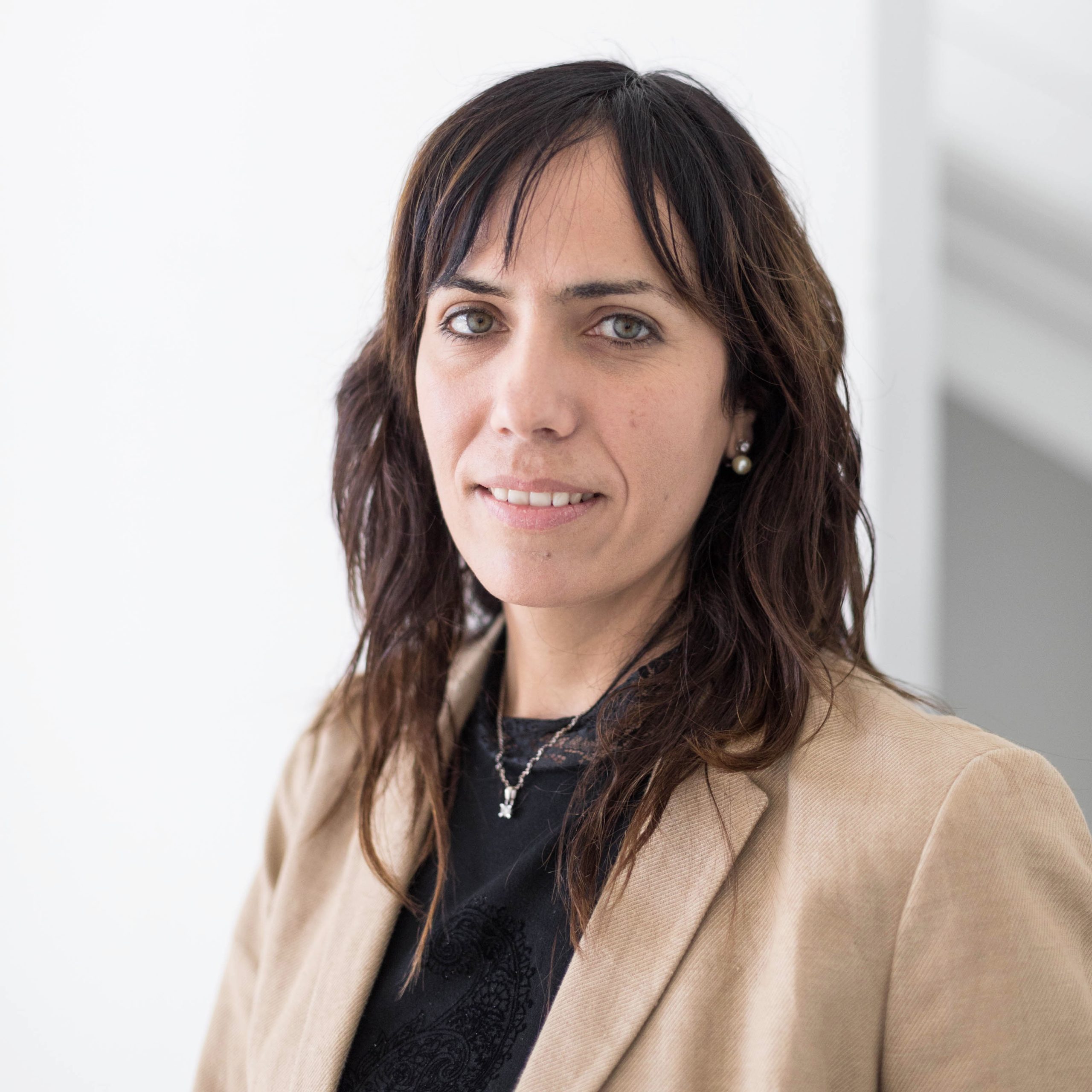 Miriam Illa
Miriam Illa
Medical specialist in Fetal Medicine at BCNatal (Hospital Clínic de Barcelona and Hospital Sant Joan de Déu).
Post-doctoral researcher and teacher in numerous specialized courses in Fetal I + D Education and international conferences.
She is the moderator of the forum “Normal pregnancy”.
 Teresa Cobo
Teresa Cobo
Dr. Teresa Cobo is a Specialist Physician at the Maternal-Fetal Medicine Service, Prematurity Unit at Hospital Clínic de Barcelona, and a member of the fetal and perinatal medicine research group, IDIBAPS-Universitat de Barcelona.
Her expertise has focused on the prediction and management of preterm birth, particularly on predicting intra-amniotic infection/inflammation.
Her work has led to a doctoral thesis (2009) and the publication of several articles in international journals with impact factor.
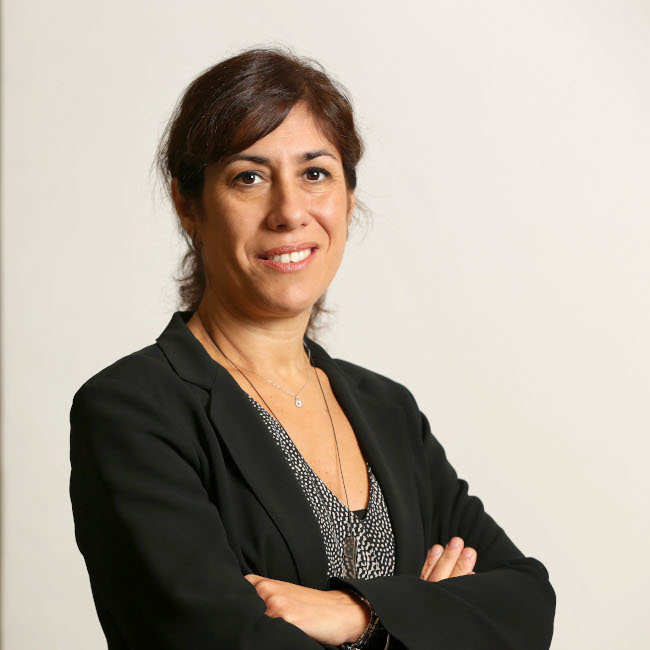 Lola Gómez
Lola Gómez
As Head of the Department of Obstetrics and Gynecology at the Sant Joan de Déu University Hospital in Barcelona, and Associate Professor of Obstetrics and Gynecology at the University of Barcelona, she oversees the general obstetrics at the Maternal-Fetal and Neonatal Medicine Service BCNatal (Hospital Clínic – Sant Joan de Déu).
Internationally, she serves as a member of the FIGO Committee for Reproductive and Developmental Environmental Health.
As the principal investigator of the Maternal and Child Health and Development Network (Red SAMID, Sant Joan de Déu Hospital), she is currently conducting research on the impact of the environment and obstetric complications on fetal and postnatal growth.
She is also responsible for the Darwin Obstetric Simulation Unit at Sant Joan de Déu Hospital, where she has conducted simulation courses at various levels.
Engaging in international projects, supervising doctoral theses, and publishing scientific articles in journals with impact factors are integral parts of her research activities.
Additionally, she contributes as a speaker at national and international courses and conferences.
 Eva Meler
Eva Meler
Senior Specialist at the Maternal-Fetal Medicine Service of the Hospital Clínic de Barcelona. She holds a Doctorate in Medicine from the University of Barcelona (UB). She is a member of the Preeclampsia-CIR Unit and the Delivery Room and Emergency Unit. She collaborates in the training of medical students at UB. She has published scientific articles in international journals with impact factor, particularly in the field of placental pathology.
 Joan Sabrià
Joan Sabrià
Dr. Joan Sabrià is a Consultant Physician at the Fetal Medicine Unit of BCNatal (Sant Joan de Déu Hospital and Hospital Clínic de Barcelona) and an Associate Professor at the University of Barcelona. With over 15 years of experience, he specializes in Prenatal Diagnosis and Fetal Pathology. Holding a Doctorate in Medicine, he has authored more than 30 scientific articles in international journals with impact factors and serves as a speaker at national and international courses and congresses. For over a decade, he was a member of the Fetal Ultrasound and Medicine Section of Catalonia and currently serves on the Prenatal Diagnosis Committee of the Department of Health of Catalonia.

